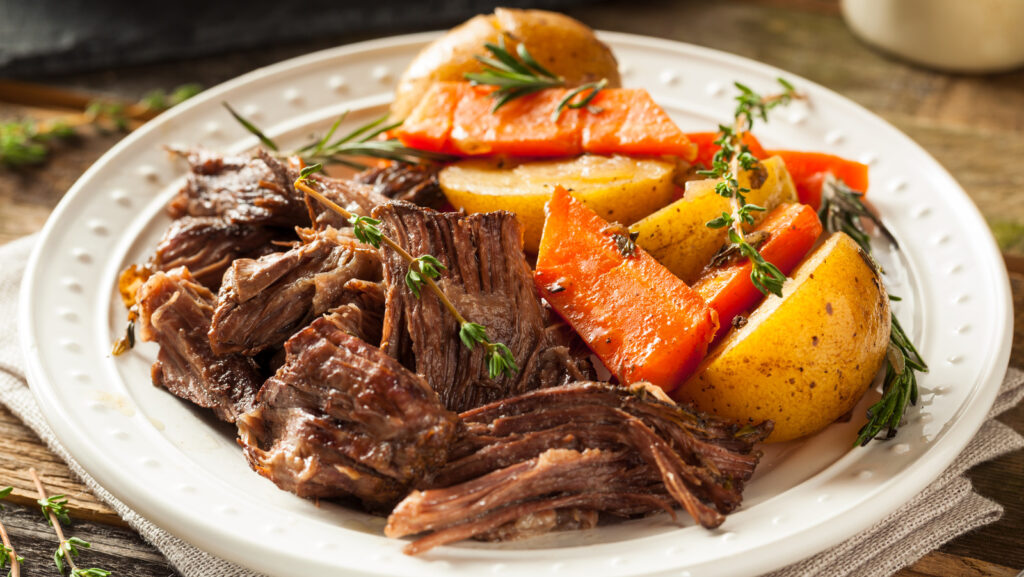Collagen makes meat tough when cooked quickly, but when slow-cooked, it breaks down into gelatin, giving you that juicy, tender mouthfeel. Fattier — and cheaper — cuts of beef can also be good for slow cooking, because the fat helps to ensure the beef won’t dry out while adding extra flavour.
Is it better to slow cook meat?
Yes, there are scientific reasons to back up the fact that slow cooked meat is better. Tenderness in meat comes from the melting of collagen – the connective tissue protein present in meat. When collagen melts, it turns into gelatin, a rich liquid that gives meat a lot of flavour as well as a silky texture.
Is it better to cook meat fast or slow?
Because well cooked meat (slow cook meat) should fall apart without effort. When meat is cooked too quickly this process doesn’t have time to occur—resulting in a cooked, but tough product. By slow cooking, meat has enough time to become tender. The rendered fat and soluble gelatin also make for one JUICY cut of meat!
What slow cooking does to meat?
The moist heat they provide softens the connective tissue that binds the muscle fibers in the meat, helping it to fall apart more easily. And when the heat is kept low, as it is in slow cooking, the proteins in the muscle are less likely to overcook, so the meat stays moist as well as tender.
What meat cooks well in a slow cooker?
Choose the right cut: Chuck roasts, short ribs, pork shoulders and lamb shanks (think fatty and tougher meats) become meltingly tender with the moist, low heat of a slow cooker. Leaner cuts like pork tenderloin tend to dry out. Likewise, dark meat chicken — thighs, drumsticks, etc.
Why is slow cooking beef so good?
One of the greatest things about slow cooking beef is that it guarantees juicy tenderness. You can use tougher cuts of beef, which are naturally more robust as they come from well-used muscles on the animal, and still find they’ll be transformed into juicy morsels that will literally fall off your fork.
What is the best cut of meat to slow cook?
Cheaper cuts of meat, like chuck steak and gravy beef, tend to be rich in tissues like sinew and muscle. These tissues, while not ideal for pan-frying or grilling (as they seize up and become chewy), break down nicely during the slow cooking process, leaving you with flavoursome, tender meat that melts in your mouth.
What is the purpose of slow cooking?
Edit: Forgot about the second part of the question. Slow cooking is good for cooking large things to an even level of doneness without drying out or burning. It is great for dissolving the connective tissues in very tough cuts of meat and fibrous vegetables. It is good for letting all the ingredients share flavors.
What is the best temperature to slow cook meat?
105F/40C – 122F/50C –Calpains begin to denature and lose activity till around 105F, cathepsains at 122F. Since enzyme activity increases up to those temperatures, slow cooking can provide a significant aging effect during cooking. Meat should however be quickly seared or blanched first to kill surface microbes.









